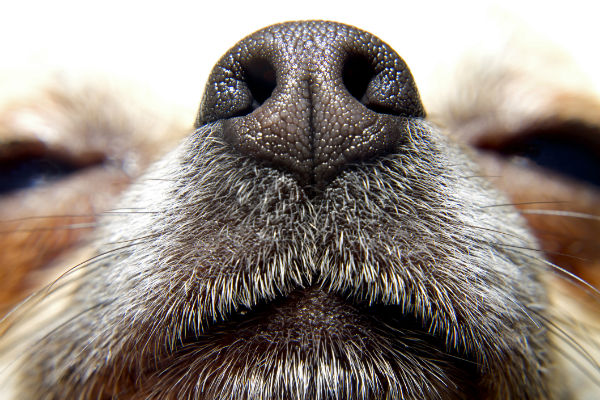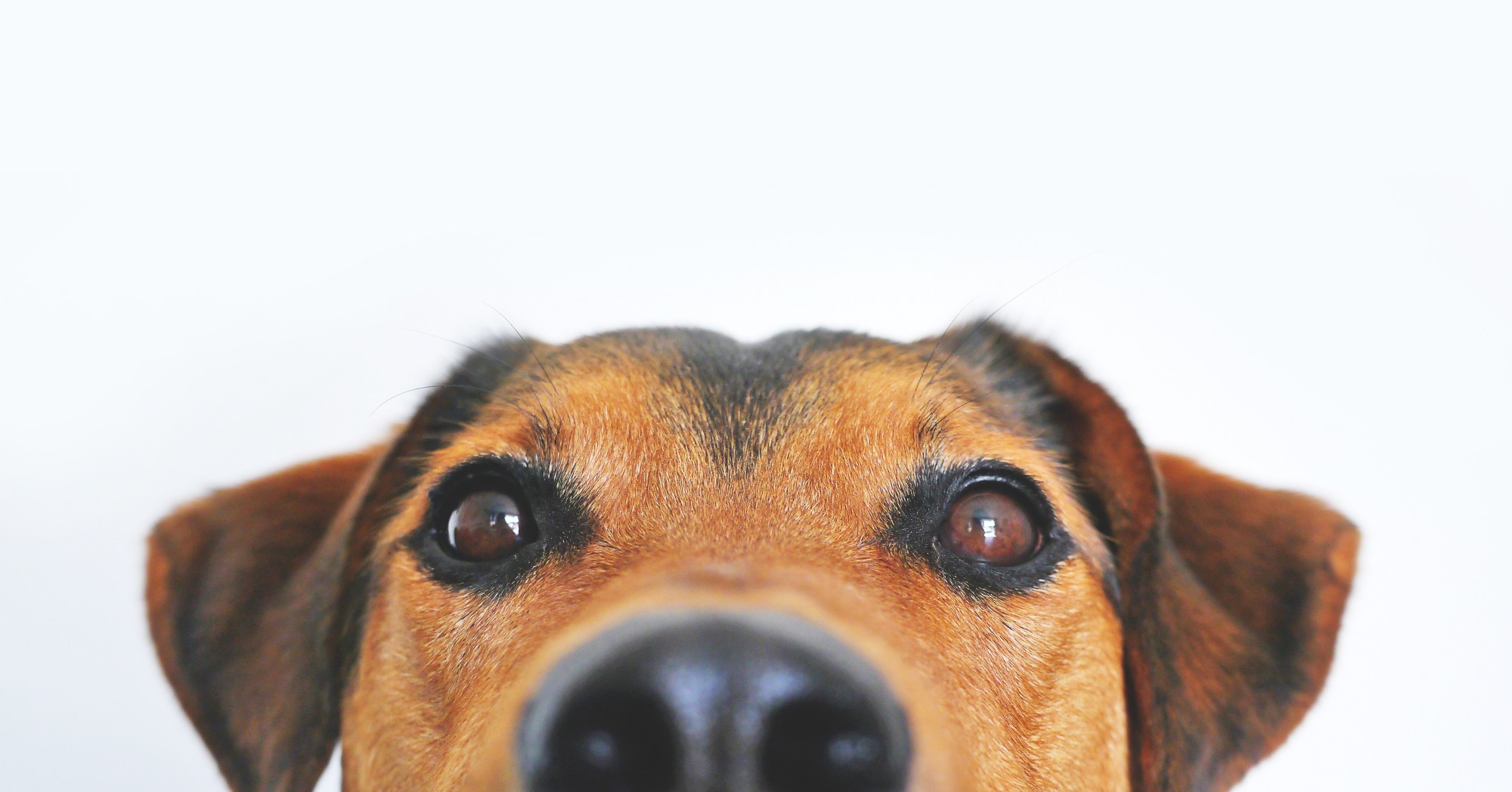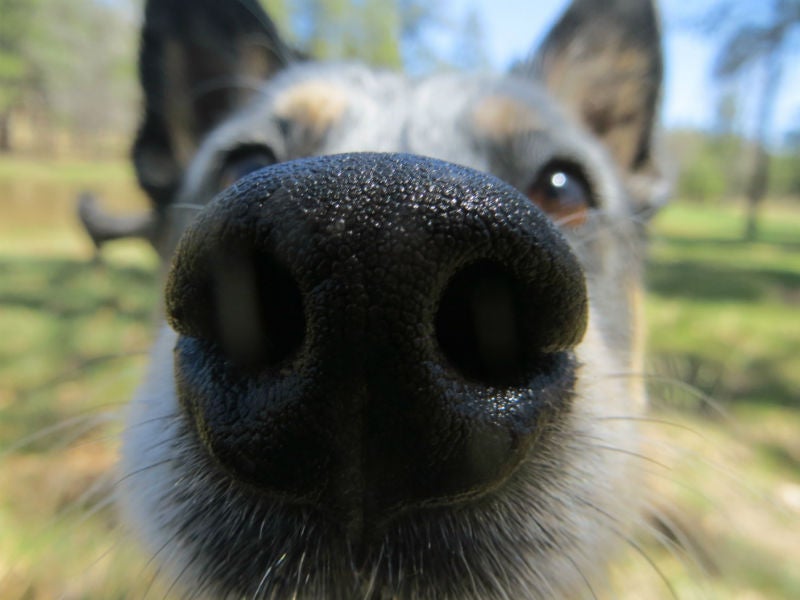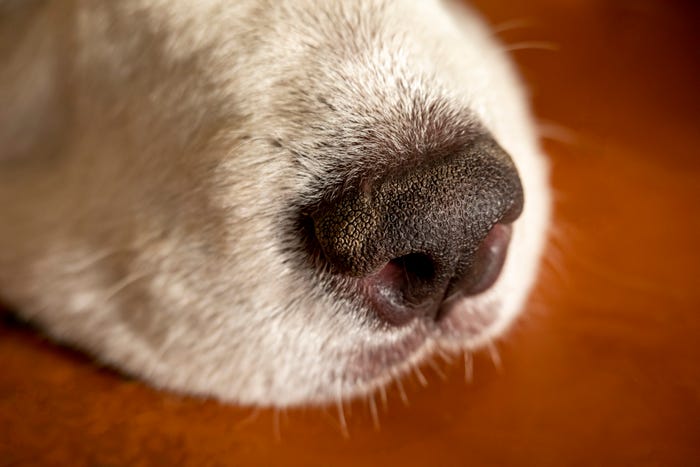A dry nose in dogs can indicate severe dehydration, so it is important to monitor your dog’s water intake and seek veterinary care if you notice other signs of dehydration such as excessive panting or lethargy.

Credit: www.akc.org
Understanding A Dry Dog Nose
If your dog’s nose is dry, it could be a sign of dehydration. Look out for other symptoms like excessive panting and lethargy. Make sure your dog has access to fresh water and contact a vet if you’re concerned.
Causes Of A Dry Dog Nose
There are several potential causes for a dry dog nose. One of the most common reasons is dehydration. Just like humans, dogs need an adequate amount of water to stay hydrated and maintain a moist nose. Other factors that can contribute to a dry nose include overexertion, sunburn, autoimmune illnesses, and allergies. It’s important to monitor your dog’s water intake and ensure they have access to fresh water throughout the day.Signs And Symptoms Of Dehydration
Dehydration can be a serious condition for dogs, and a dry nose is often one of the first signs. In addition to a dry nose, other symptoms of dehydration to watch out for include excessive panting, sunken eyes, lack of skin elasticity, lethargy, and even vomiting. If you notice these warning signs in your dog, it’s crucial to take immediate action. Provide your dog with water and monitor their condition closely. Severe dehydration may require veterinary care, so be prepared to contact your veterinarian if necessary.When To Contact A Veterinarian
While a dry dog nose can be relatively common, especially in certain weather conditions, it’s essential to keep an eye out for any accompanying signs and symptoms. If your dog’s dry nose is accompanied by excessive panting, sunken eyes, lack of skin elasticity, lethargy, or vomiting, it’s important to reach out to your veterinarian for guidance. They will be able to assess your dog’s condition and provide appropriate treatment if necessary. Remember, as a responsible dog owner, it’s crucial to be vigilant about your dog’s hydration and overall health. Keeping an eye on their water intake, providing access to fresh water, and monitoring for any changes in behavior or physical symptoms can help ensure their well-being.Treating And Preventing A Dry Dog Nose
A dry dog nose can be uncomfortable for your furry friend and may indicate underlying health issues. Fortunately, there are steps you can take to treat and prevent a dry dog nose. By providing adequate water intake, using dog-safe nose balm, and applying coconut oil, you can help keep your dog’s nose moist and healthy.
Providing Adequate Water Intake
Ensuring your dog has access to fresh water throughout the day is essential for preventing a dry nose. Dogs need to stay hydrated, just like humans do. Make it a habit to check their water bowl several times a day to ensure it is always filled. Additionally, consider placing multiple water bowls around the house to make it easily accessible for your furry friend.
Using Dog-safe Nose Balm
Nose balms specially formulated for dogs can help moisturize and protect your dog’s nose. These balms are often made with natural ingredients such as shea butter, beeswax, and essential oils. They create a barrier that helps retain moisture and prevent further drying. When applying the nose balm, make sure to gently massage it into your dog’s nose for better absorption.
Applying Coconut Oil
Coconut oil is a natural moisturizer that can be used to soothe and hydrate your dog’s dry nose. Apply a small amount of coconut oil onto your finger and gently rub it onto your dog’s nose. The oil will help soften and moisturize the dry skin. Just be sure to use organic, unrefined coconut oil to avoid any potential harmful additives.
In addition to these treatments, it is important to monitor your dog’s overall health and hydration levels. If you notice severe dehydration symptoms or if the dry nose persists despite your efforts, it is best to consult with your veterinarian for further evaluation and guidance. Remember, preventing a dry dog nose is key to maintaining your furry friend’s overall well-being and comfort.
Other Factors And Considerations
While dehydration, autoimmune illnesses, and allergies can cause a dry nose in dogs, there are several other factors and considerations to keep in mind:
Autoimmune Illnesses And Allergies
Autoimmune illnesses and allergies can also contribute to a dry nose in dogs. These conditions cause the immune system to attack healthy cells, including those in the nose. Allergies, in particular, can lead to inflammation and dryness. If your dog has a history of autoimmune illnesses or is prone to allergies, it’s essential to monitor their nose and seek veterinary care if it remains dry.
Dry Nose During Sleep
It’s common for dogs to have a dry nose when they wake up from a nap or a night of sleep. During sleep, their body temperature may drop slightly, causing their nose to dry out. However, if your dog’s nose remains dry throughout the day, it could be a sign of other underlying issues like dehydration or illness.
Preventing Infection
Keeping your dog’s nose hydrated is crucial to preventing infection. Dryness can create cracks in the nose’s skin, which can allow bacteria and other pathogens to enter. To prevent infection, you can apply a warm, moist cloth to your dog’s nose or use a nose balm specifically designed for dogs. These products help moisturize the skin and keep it protected.
In conclusion, while dehydration, autoimmune illnesses, and allergies are common causes of a dry nose in dogs, it’s essential to consider other factors and take appropriate measures to prevent infection. Regular veterinary check-ups and maintaining proper hydration are key to ensuring your furry friend’s nose remains healthy and moisturized.

Credit: www.stfrancisvh.com

Credit: www.akc.org
Frequently Asked Questions For What Does It Mean When Your Dogs Nose Is Dry
Should I Worry If My Dog’s Nose Is Dry?
If your dog’s nose is dry, it could be a sign of severe dehydration. Look out for other symptoms like excessive panting, sunken eyes, lack of skin elasticity, lethargy, and vomiting. Make sure your dog is drinking enough water and contact the vet if necessary.
Is It Good For A Dogs Nose To Be Wet Or Dry?
A dog’s nose being dry may indicate dehydration. Other signs of dehydration include excessive panting, sunken eyes, lack of skin elasticity, lethargy, and vomiting. Check your dog’s water intake and consult a vet if you notice these symptoms.
Is My Dog Thirsty If His Nose Is Dry?
A dry nose in dogs can indicate dehydration. Keep an eye on your dog’s water intake and contact a vet if you notice other signs of dehydration like excessive panting or lethargy.
How Do You Fix A Super Dry Dog’s Nose?
To fix a super dry dog’s nose, ensure they have enough fresh water throughout the day and use dog-safe nose balm or coconut oil for extra hydration. Seek veterinary care if the dry nose is accompanied by other symptoms.
Conclusion
If you notice that your dog’s nose is dry, it could be a sign of dehydration. It’s important to monitor your dog’s water intake and provide them with plenty of fresh water. A dry nose, along with other symptoms like excessive panting or lethargy, may indicate a more serious underlying issue.
If you notice these signs, it’s best to consult with your veterinarian to ensure your dog’s health and well-being.



